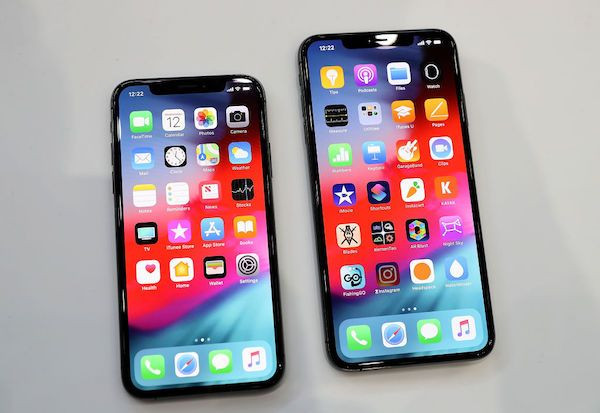Apple vs. Samsung: iPhones Dominated Premium Smartphone Market In Q3

Amid rumors that Apple’s (AAPL) new iPhones have been suffering sluggish sales, a new report has claimed that the iOS-running smartphones dominated the premium smartphone market in the third quarter of 2018, beating Samsung’s latest Galaxy S and Note offerings.
Counterpoint Research’s Market Monitor recently disclosed that collected market data showed Apple’s iPhones as the most in demand handsets in the premium segment. This segment, which is composed of devices valued at $400 or higher, represents 22 percent of the global smartphone market.
According to the report, Apple’s new iPhones captured 47 percent of the premium market segment in the third quarter, which is twice than Samsung’s 22 percent share. Huawei came third with 12 percent, then other Chinese brands followed suit. Vivo and Oppo got 5 percent each, while Xiaomi secured 3 percent.
Looking at the specific price segments, Apple did not really secure the top spot in the $400 to $600 segment, which accounts for 46 percent of the premium smartphone market. Apple only had a 21 percent share, while Samsung secured the lead with a 25 percent share. Huawei trailed behind the two with 17 percent.
However, Apple definitely beat Samsung in the $600 to $800 bracket for having 61 percent of shipments compared to the latter’s 21 percent. The Cupertino giant’s dominance in the premium smartphone market is strongly felt in the $800-or-more category with its 79 percent share.
Based on the collected data, Apple’s iPhones performed the best in the following regions: North America, the Middle East and Africa, Western Europe, China and the Asia-Pacific. Meanwhile, Apple only came second in Latin America, Central Europe and Eastern Europe. The tech giant only came third in India, behind OnePlus and Samsung, as pointed out by AppleInsider.
There are 40 manufacturers competing in the premium smartphone market at present. However, this segment is largely dominated by a few companies including Apple and Samsung. In fact, the five biggest players in the segment account for around 89 percent of shipments.
It’s important to note that Apple has decided to no longer disclose unit-shipment data for its products. CFO Luca Maestri justified this move saying, “The number of units sold in any 90-day period is not necessarily representative of the underlying strength of the business.”
© Copyright IBTimes 2024. All rights reserved.





















